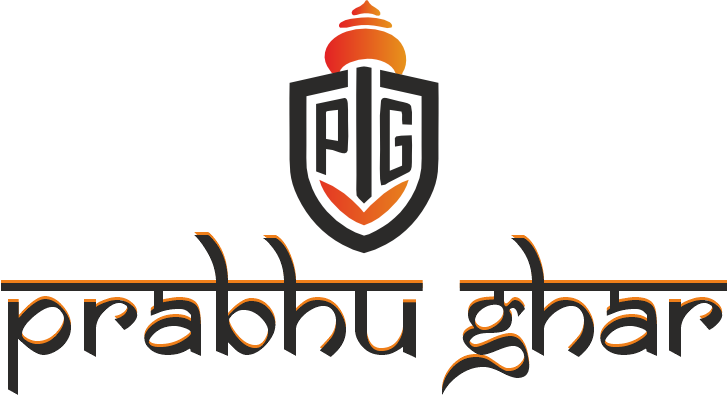The Marvel Cinematic Universe (MCU) has captivated audiences worldwide through its interconnected storytelling, dynamic characters, and innovative narrative techniques. Among its most compelling figures is Loki, the Norse god of mischief. His complex evolution from a villain to a nuanced antihero exemplifies how character development can fundamentally influence a franchise’s storytelling approach. By examining Loki’s transformation, we gain insights into broader storytelling principles that are applicable across various media and genres, illustrating how character arcs drive plot and thematic depth.
Transformations in Loki’s Persona and Their Narrative Significance
Tracing Loki’s Evolution from Villain to Complex Antihero
Initially introduced in The Avengers (2012), Loki was portrayed as a straightforward antagonist driven by ambition and a desire for power. His actions—such as invading Earth and attempting to enslave humanity—established him as a quintessential villain. However, as the franchise progressed, especially through films like Thor: Ragnarok (2017) and the Disney+ series Loki, his character evolved into a multi-dimensional figure facing moral ambiguity. This transformation reflects a broader narrative trend in contemporary storytelling: moving away from clear-cut villains to characters with relatable flaws and internal conflicts.
Impact of Loki’s Personal Growth on Major MCU Plotlines
Loki’s development significantly influences key plotlines. For example, his decision to escape with the Tesseract in Avengers: Endgame (2019) set the stage for the multiverse exploration that dominates recent MCU phases. His complex motives—balancing self-interest with moments of genuine vulnerability—add depth to the overarching narrative, making him a catalyst for both conflict and reconciliation. This evolution demonstrates that character growth can serve as a narrative device to propel major story arcs rather than merely serving as background development.
💫 Premium UK Casinos Outside GamStop 2025 – Quality Gaming
Role of Loki’s Shifting Morality in Shaping MCU Themes
Loki’s moral fluidity embodies themes of redemption, identity, and free will. His fluctuating morality challenges audiences to question notions of good and evil, illustrating that character complexity enriches thematic exploration. This shifting morality also underpins the MCU’s departure from traditional hero narratives, emphasizing that growth often involves moral gray areas. Such nuanced characters enable the franchise to explore mature themes, resonating with diverse audiences and fostering deeper engagement.
Influence of Loki’s Character Arc on MCU’s Multiverse Expansion
Loki’s Variants and the Multiverse: Narrative Implications
The introduction of Loki variants, notably in the Disney+ series Loki, signifies a pivotal shift in MCU storytelling. Variants allow for multiple versions of a single character, each with unique traits and choices. This concept not only broadens narrative possibilities but also reflects real-world complexities, such as identity and choice. The multiverse framework, facilitated by Loki’s character, enables Marvel to revisit past events and explore alternative storylines, enriching the franchise’s lore and providing fresh avenues for storytelling.
How Loki’s Development Facilitates Multiversal Storytelling
Loki’s evolution from a villain to an antihero makes him an ideal conduit for multiversal narratives. His capacity for change and adaptation demonstrates that characters can embody multiple identities simultaneously. This adaptability allows writers to craft stories where Loki’s variants interact, clash, or cooperate, creating a layered and interconnected multiverse. Such storytelling not only increases narrative complexity but also invites fans to engage with the franchise on a deeper level, contemplating alternate realities and the consequences of choices.
Consequences of Loki’s Actions on Multiverse Stability
While Loki’s actions have enabled multiverse expansion, they also introduce risks. His penchant for mischief and unpredictable behavior can threaten multiverse stability, leading to potential chaos. This mirrors real-world scenarios where individual actions have ripple effects on larger systems. In the MCU, Loki’s development underscores the importance of responsibility and foresight, illustrating that personal growth can influence collective stability. This dynamic emphasizes that character arcs are not isolated but integral to the universe’s broader narrative fabric.
Practical Examples of Loki’s Evolving Role in MCU Projects
Analysis of Loki’s Character in ‘The Avengers’ and ‘Ragnarok’
In The Avengers, Loki embodies pure antagonism, with his desire for conquest and chaos. His confrontation with Earth’s heroes establishes him as a formidable foe. Conversely, in Thor: Ragnarok, Loki’s character reveals more layers—his cunning, vulnerability, and capacity for alliance—highlighting his growth from a mere villain to a more sympathetic figure. These contrasting portrayals exemplify how character development can shift narrative tone and deepen audience engagement across different story arcs.
Significance of Loki in ‘Loki’ Disney+ Series for Future MCU Narratives
The Disney+ series Loki expands his character by exploring his identity, motives, and impact on the multiverse. It introduces the concept of variants and showcases his internal conflicts, emphasizing personal evolution. This series acts as a narrative bridge, connecting past films with future multiverse storylines, such as Doctor Strange in the Multiverse of Madness and Ant-Man and the Wasp: Quantumania. Loki’s character here exemplifies how individual arcs can serve as catalysts for larger universe-wide narratives.
Impact of Loki’s Character Changes on Cross-Project Storytelling
Loki’s evolving character influences multiple MCU projects, creating continuity and thematic resonance. His actions and decisions ripple through films and series, affecting character relationships and plot developments. This interconnectedness exemplifies modern storytelling techniques that prioritize character-driven narratives, ensuring that each project contributes to a cohesive universe. It also demonstrates how character development enhances storytelling depth, making the MCU a dynamic and immersive experience for viewers.
Understanding how Loki’s character development shapes the MCU’s storytelling offers valuable lessons for creators and fans alike. It highlights the importance of nuanced character arcs in driving plot, exploring themes, and expanding narrative universes. As the franchise continues to evolve, Loki’s journey provides a blueprint for integrating character complexity with innovative storytelling, making the MCU a prime example of modern franchise storytelling principles. For further insights into complex character narratives, exploring diverse storytelling platforms can be rewarding—such as those found at https://lokicasino.uk/, which exemplifies how layered narratives engage audiences across mediums.
